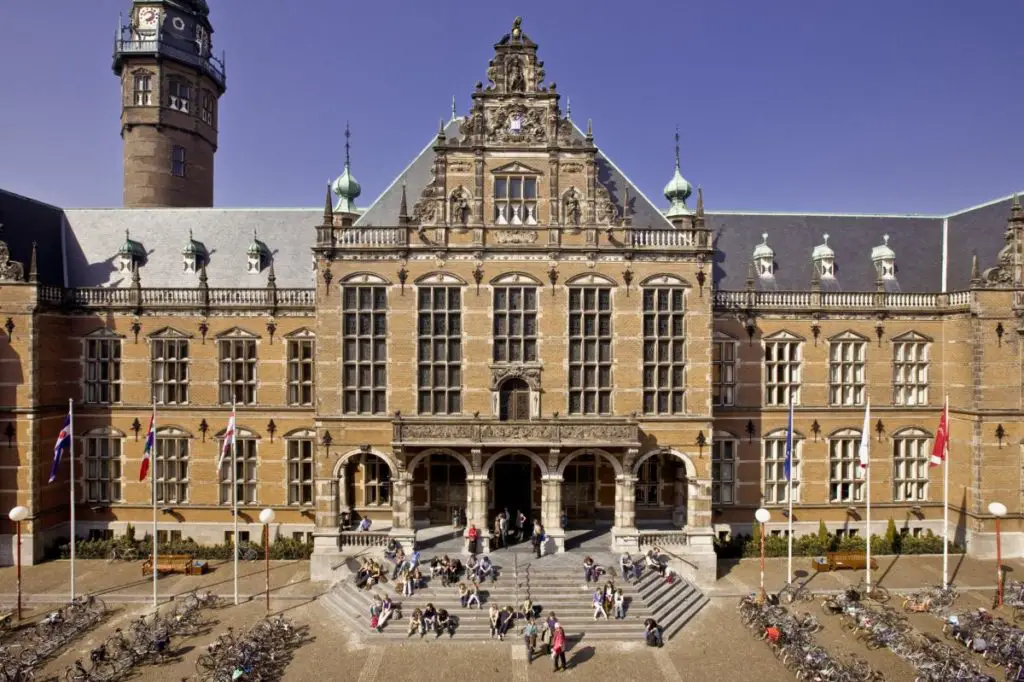In order to pursue our research activities, we are looking for two highly motivated PhD candidates who will contribute to an EU-ITN project called CC-TOP (https://cc-top-itn.eu/cc-top-project/). The main goal of CC-TOP is to train the next generation of multi-disciplinary researchers in order to boost the development and exploitation of carboligation enzymes for industrial biotechnology, in particular for production of fine chemicals and pharmaceuticals. Therefore, CC-TOP will train 15 Early Stage Researchers (ESRs) in a mosaic of disciplines and technologies around enzymatic carboligation and its translation into industrial application. The network´s aim for efficient translation of breakthrough technology into industrial application is emphasised through the implementation of an industrial skills module and measures for active innovation management involving all ESRs. The two individual ESR projects at the University of Groningen are described below.
PhD project (ESR13) on exploiting enzyme promiscuity to develop novel aldolases
ESR13 investigates 4-oxalocrotonate tautomerase (4-OT) promoted aldol addition of acetaldehyde to a variety of benzaldehydes looking for efficiency, stereochemistry and product selectivity. The researcher will generate mutability landscapes for this enzyme to develop tailor-made aldolases with enhanced activity and selectivity and will harness the best performing enzymes in (chemo)enzymatic cascades to prepare diols and aminoalcohols. In addition, redesigned natural aldolases will also be tested as potential catalysts for these and related reactions. Moreover, the researcher will oversee characterisation studies of these enzymes. Research training periods (secondments) of a few months at Prozomix Ltd (UK) and TU Darmstadt (Germany) are foreseen.
PhD project (ESR14) on engineering of enantioselective Michaelases
ESR14 investigates the promiscuous activity of 4-OT and related enzymes to promote the asymmetric addition of nitroalkanes to a wide variety of α,β-unsaturated aldehydes. For this purpose, the researcher enrolled will optimise the enzymes for reactions that yield interesting γ-aminobutyric acid (GABA) precursors by using different tools of protein engineering. He/she will afterwards characterise the artificial Michaelases in terms of structure-function relationships, using techniques such as DNA sequencing, protein purification and characterisation, and X-ray structure analysis. Research training periods (secondments) of a few months at the University of Zagreb (Croatia) and Enzymicals AG (Germany) are foreseen.
Qualifications
We are looking for enthusiastic and talented PhD candidates with a Master of Science (MSc) degree in chemistry, biotechnology, biochemistry, or related, and with outstanding laboratory skills. Experience with chemical synthesis and analysis is a big plus. You are expected to have an excellent academic record and be fluent in the English language. Important personal skills include the ability to collaborate with a variety of (external) parties, and be interested in further exploration of commercial applications.
IMPORTANT: PhD candidates must not have resided or worked for more than 12 months in the Netherlands in the last 3 years before the start of their contract and will have a maximum of 4 years of experience after graduation.
Organisation
The vacancies are at the Department of Chemical and Pharmaceutical Biology (Prof. Gerrit J. Poelarends; http://www.rug.nl/staff/g.j.poelarends/), Groningen Research Institute of Pharmacy, Faculty of Science and Engineering, University of Groningen. The research of Prof. Poelarends is aimed at the design of novel biocatalysts and enzymatic cascades for the synthesis of pharmaceuticals and food additives. We offer a stimulating research environment for PhD students interested in enzyme engineering and biocatalysis. The department’s research laboratories are well equipped for molecular biology, enzymology, protein engineering, biocatalysis, and organic chemistry work.
The University of Groningen (founded in 1614) has a long tradition of academic excellence, being one of the oldest research universities in Europe. The University is currently in or around the top 100 on several influential ranking lists. Currently approximately 35,000 students are enrolled and about 1,500 PhD students work on their theses. It has a highly international character: English is the main language in the research laboratories. The city of Groningen is a historic town and among the ten biggest cities in The Netherlands. It is a vibrant student town with a direct train connection to Schiphol Airport near Amsterdam.
Conditions of employment
We offer you in accordance with the Collective Labour Agreement for Dutch Universities:
• a salary of € 2,395 (salary scale PhD candidates) gross per month in the first year, up to a maximum of € 3,061 gross per month in the fourth and final year, based on a full-time position
• a holiday allowance of 8% gross annual income an 8.3% year-end bonus
• a temporary position of one year with the option of renewal for another three years; prolongation of the contract is contingent on sufficient progress in the first year to indicate that you will successfully complete your PhD thesis within the next three years. A PhD training programme is part of the agreement.
The preferred starting date is between September 2021 and November 2021.
Application
Submit your application via the CC-TOP website: https://cc-top-itn.eu/cc-top-project/
Required documents: curriculum vitae, motivation letter, certified records, names and email addresses of at least two academic references willing to write confidential letters of recommendation.
We are an equal opportunity employer that values diversity. We have adopted an active policy to increase the number of female scientists across all disciplines of the university. Therefore, women are encouraged to apply. Our selection procedure follows the guidelines of the Recruitment code (NVP), https://www.nvp-hrnetwerk.nl/sollicitatiecode/ and European Commission's European Code of Conduct for recruitment of researchers, https://euraxess.ec.europa.eu/jobs/charter/code
Deadline for the applications is 31 May 2021, 11:59 pm (CET).
Information
For information you can contact:
Please do not use the e-mail address(es) above for applications.



No comments:
Post a Comment